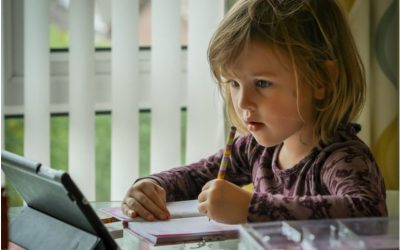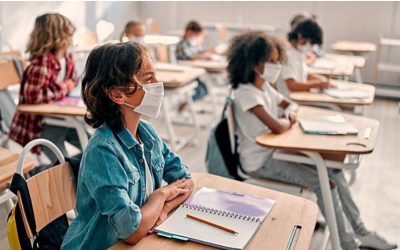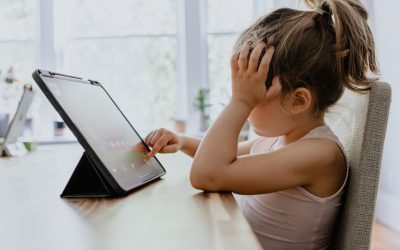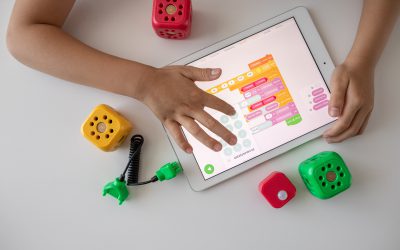COVID-19 Education News week June 8 – June 12
16 Jun 2020 | News
In this week’s education news overview:
- The report of the Education Council, which advises to invest in the following five points: Teachers and school leaders to tackle the teacher shortage as well, equal opportunities, improve reading skills, lifelong learning, and a more robust assessment system.
- More than half of the school is content on the reopening of secondary schools, although 56% indicates that keeping 1.5 meters distance is difficult.
- The Red Cross has developed teaching materials about hygiene for pupils.
- The World Bank recommends the following for school leaders in developing countries: focus on the basic needs and vulnerable children and parents and local community involvement in making decisions.
Prof. Dr. Melanie Ehren & Rukiye Turkeli
16-06-2020


DUTCH NEWS
Education Council: Looking ahead for young generations
The Education Council has published the report ‘ Looking ahead for young generations ‘ with five key points in which the government must invest for the future. The recommendations are not based on only the past few months but engages the challenges before Corona as well. The Education Council advises the government to evaluate the lessons learned. The five key points:
1. Invest in teachers and school leaders
Teacher shortages was a major problem before the Corona crisis and will continue to pose challenges for schools. It is imperative to recruit new teachers and school leaders and to retain current school staff. The Education Council advises that investments should be made in teachers and school leaders, for example by investing in closing the salary gap between primary and secondary education. Investments can also be made in the salary of teachers who work in schools where the teacher shortage is greatest or in schools with more disadvantaged children. In addition, school staff must be given more time and support to develop blended learning. Finally, investments must be made in making the profession more attractive, particularly for job switchers.
2. Invest in equal opportunities
The Corona crisis threatens to increase inequality of opportunity, according to the Education Council. Students who were already vulnerable will likely struggle to catch up. The Education Council advises to reduce ability grouping and to allow for easier switching between tracks, and to postpose early selection.
3.Invest in reading skills
The Education Council warns about declining reading skills of large group of students, particularly now that libraries are closed and learners from disadvantaged background lack opportunities to read at home. Government, municipalities, schools, and libraries should collaboratively promote reading for comprehension.
4. Invest in transition to the labour market and lifelong learning
The transition of school leavers to the labor market is a concern with potential high youth unemployment because of COVID-19 and reduced opportunities to gain practical work experience in school. With a potential economic recession, lifelong learning becomes ever more important and government needs to invest in adult –lifelong- learning.
5.Improving the flexibility of testing and examination
The Education Council advises investing further in standardized assessments, particularly for qualification purposes and when students transition between grades. Assessments need to test whether students have met grade specific learning objective, allow for a comparison of performance against peers, but also include more flexible testing formats (oral/digital) to be used in times of a crisis.
Reopening secondary schools: survey among school leaders
A survey of the council for Secondary Education among 450 school leaders shows that 62% are satisfied with the first week of (part) opening of secondary schools. In addition, 56% of the school leaders indicate that maintaining 1.5-meter distance between students is a big challenge. Although keeping distance in the classroom is doable, this is more problematic in the corridors, on the schoolyard and outside school. According to the council for Secondary Education, school leaders note that the necessity of social distancing is not understood by all students. 54% of school leaders also report difficulties in combining distance and in-school education and how this reduces the quality of learning.
Hygiene at school: Red Cross teaching materials
Now that primary and secondary schools are (fully or partially) reopened, hygiene and distance at school becomes more important. The Red Cross has developed free hygiene teaching materials for primary schools in the Netherlands, which include simple videos and assignments with fun elements so children learn, for example, why washing hands and keeping distance is important. The Red Cross also offers an online guest lesson in which a speaker provides information about hygiene topics and answers students’ questions.
INTERNATIONAL NEWS
School leadership in uncertain times
The World Bank provides in a blog four guidelines for schools to improve the welfare and student engagement when they return to school.
Focus on basic needs first: When schools are reopened, attention should first be paid to children’s basic needs such as food, health, and emotional well-being before concentrating on the academic subjects. An example is offered of a programme developed in Liberia in response to the Ebola outbreak.
Focus on at-risk children with limited access to education: particularly girls and pupils from poor families.
Focus on engaging the local community through communication and collaboration: during the COVID-19 pandemic, a lot of investments were made in communication with parents and the local community; this communication is essential to ensure that pupils return to school after the opening of schools and to further support the learning process.
Renewed focus on students’ needs and curriculum renewal: to limit possible delays and /or to achieve more learning gains.
See also information for:
Most recent blogs:
How LEARN! supports primary and secondary schools in mapping social-emotional functioning and well-being for the school scan of the National Education Program
Jun 28, 2021
Extra support, catch-up programmes, learning delays, these have now become common terms in...
Conference ‘Increasing educational opportunities in the wake of Covid-19’
Jun 21, 2021
Covid-19 has an enormous impact on education. This has led to an increased interest in how recent...
Educational opportunities in the wake of COVID-19: webinars now available on Youtube
Jun 17, 2021
On the 9th of June LEARN! and Educationlab organized an online conference about...
Homeschooling during the COVID-19 pandemic: Parental experiences, risk and resilience
Apr 1, 2021
Lockdown measures and school closures due to the COVID-19 pandemic meant that families with...
Catch-up and support programmes in primary and secondary education
Mar 1, 2021
The Ministry of Education, Culture and Science (OCW) provides funding in three application rounds...
Home education with adaptive practice software: gains instead of losses?
Jan 26, 2021
As schools all over Europe remain shuttered for the second time this winter because of the Covid...





